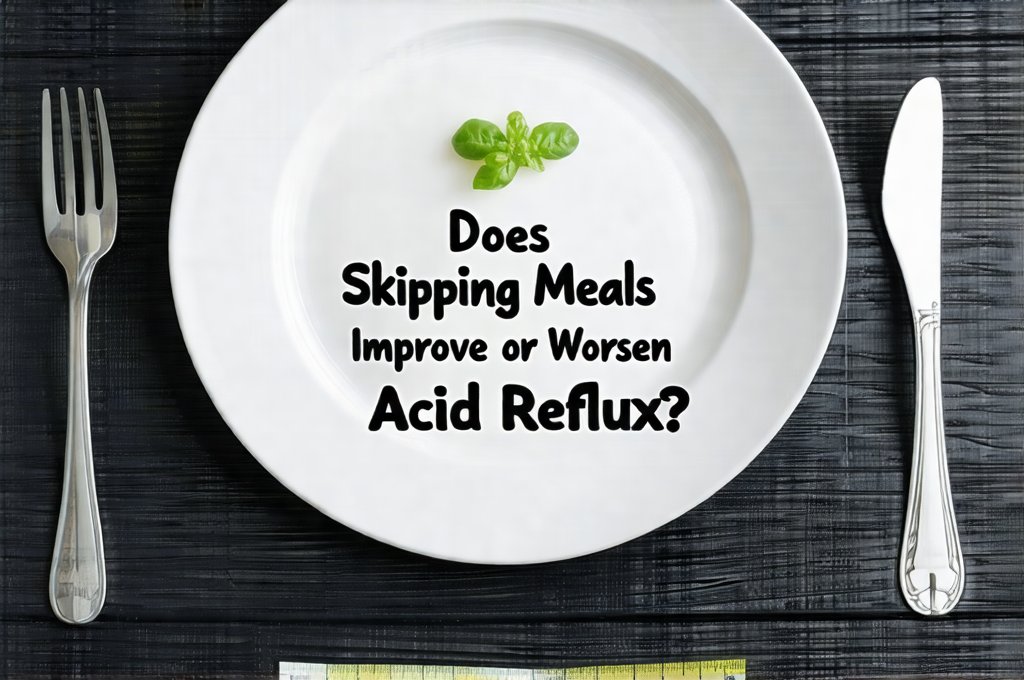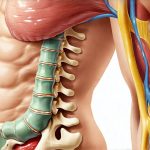Acid reflux, also known as gastroesophageal reflux disease (GERD), is a common digestive issue affecting millions worldwide. It occurs when stomach acid frequently flows back into the esophagus – the tube connecting your mouth to your stomach. This backflow can cause heartburn, regurgitation, and other uncomfortable symptoms, significantly impacting quality of life. Many individuals grappling with these symptoms often wonder about dietary modifications as potential relief strategies, leading to questions like: Does skipping meals actually help manage acid reflux, or does it inadvertently worsen the condition? The relationship between meal timing and reflux is complex and isn’t always intuitive; a seemingly logical approach can sometimes have unintended consequences.
The conventional wisdom might suggest that eating less frequently reduces the amount of stomach acid produced, therefore lessening the chance of reflux. However, the digestive system is intricately regulated, and simply skipping meals doesn’t necessarily equate to reduced acidity or improved esophageal health. In fact, this practice can disrupt the natural physiological processes governing digestion and potentially exacerbate symptoms for a significant number of people. It’s important to understand that acid production isn’t solely tied to when you eat, but also what you eat and your overall lifestyle factors. The body responds dynamically to perceived food scarcity or irregular eating patterns, often leading to unexpected outcomes when trying to control reflux through meal skipping. Can skipping meals can have unintended consequences for digestive health.
The Impact of Meal Timing on Acid Production
The stomach consistently produces hydrochloric acid for digestion, even between meals – it’s not simply “on” when we eat and “off” when we don’t. However, the rate of acid production is significantly influenced by eating. When food enters the stomach, it stimulates increased acid secretion to aid in breakdown. Skipping meals doesn’t necessarily stop this baseline production; instead, it can lead to a build-up of acid as the body anticipates and prepares for incoming food that never arrives. This excess acidity, combined with an empty stomach, can actually increase pressure on the lower esophageal sphincter (LES) – the muscle that prevents acid from flowing back up – making reflux more likely.
Furthermore, prolonged periods without eating can disrupt the normal gastric emptying process. When the stomach remains empty for extended durations, it can become more sensitive and reactive, potentially leading to increased acidity upon the next meal. This is because the body might overcompensate with higher acid production when food finally arrives, anticipating a larger influx than usual. The result? A heightened risk of reflux symptoms. It’s also worth noting that irregular eating patterns can affect the strength and function of the LES itself, weakening its ability to effectively prevent backflow over time.
Finally, skipping meals often leads to poor dietary choices later on due to increased hunger. Individuals may opt for quick, convenient foods – frequently those high in fat or acidity – when they finally do eat, further contributing to reflux episodes. – Fast food – Fried foods – Highly processed snacks are common examples of triggers that exacerbate symptoms. Are you reacting to certain foods might be a factor as well?
How Long Between Meals is Too Long?
Determining the ideal time between meals varies from person to person and depends on individual digestive health, metabolism, and dietary habits. However, generally speaking, going more than 4-5 hours without eating can begin to disrupt normal digestive processes and potentially increase the risk of reflux. This isn’t a rigid rule, but rather a guideline based on how the body typically functions. – Shorter, more frequent meals are often better tolerated by individuals with GERD. – Avoid excessively long gaps between eating – even if it feels like a way to reduce overall acid production. Can small meals be a solution for some?
The key is to find a balance that works for you. Pay attention to your body’s signals and note when symptoms are exacerbated or alleviated based on meal timing. Some individuals may find that smaller, more frequent meals every 2-3 hours minimize reflux, while others might prefer three well-balanced meals with moderate intervals between them. The goal is not necessarily to eliminate all acid production but rather to manage it in a way that minimizes backflow and discomfort. Consider keeping a food diary alongside symptom tracking to identify individual triggers and patterns related to meal timing.
The Role of Late-Night Eating vs. Skipping Breakfast
While skipping meals during the day might seem problematic, late-night eating is often cited as a significant contributor to acid reflux. This is because lying down shortly after consuming a meal increases the likelihood of stomach acid flowing back into the esophagus due to gravity. However, skipping breakfast can also be detrimental for similar reasons. – Skipping breakfast can lead to increased hunger later in the day, potentially resulting in overeating during lunch or dinner. – It may disrupt the body’s natural circadian rhythm and impact digestive function. What is acid reflux and how it relates to these habits?
A consistent eating schedule, including a balanced breakfast, helps regulate digestion throughout the day. A nourishing breakfast kickstarts metabolism and sets the stage for more controlled eating habits, reducing the risk of overindulgence. Moreover, delaying the first meal of the day can lead to increased acid production in anticipation of food, potentially exacerbating reflux symptoms if you finally eat a large meal after prolonged fasting. Therefore, while late-night meals are often discouraged, skipping breakfast isn’t necessarily a helpful alternative for managing acid reflux.
The Importance of Meal Composition – Beyond Timing
It’s crucial to remember that meal timing is only one piece of the puzzle when it comes to acid reflux management. What you eat significantly impacts your symptoms as well. Certain foods are known triggers for GERD, while others can actually help soothe and protect the esophagus. – High-fat foods – Spicy foods – Citrus fruits – Tomatoes – Chocolate – commonly trigger reflux.
Focusing on a diet rich in lean proteins, whole grains, fruits, and vegetables can help minimize symptoms. Smaller, more frequent meals composed of easily digestible foods are generally better tolerated than large, heavy meals. Furthermore, staying hydrated by drinking plenty of water throughout the day helps dilute stomach acid and aids in digestion. – Avoid carbonated beverages, caffeine, and alcohol – all known reflux triggers. Can music or light affect your symptoms too?
Lifestyle Factors Beyond Diet
Acid reflux isn’t solely a dietary issue; various lifestyle factors play a significant role in its development and management. – Obesity: Excess weight puts pressure on the abdomen, forcing stomach acid upwards. – Smoking: Weakens the LES and increases acid production. – Stress: Can exacerbate digestive symptoms, including reflux. – Sleep position: Sleeping flat can increase the risk of backflow.
Addressing these lifestyle factors alongside dietary modifications can significantly improve symptom control. Losing weight if overweight or obese, quitting smoking, managing stress levels through techniques like yoga or meditation, and elevating the head of your bed during sleep are all helpful strategies. Regular exercise is also beneficial, but avoid strenuous activity immediately after eating. The goal is to create a comprehensive plan that addresses all contributing factors.
Furthermore, consider the impact of clothing on reflux symptoms. Tight-fitting clothes can increase abdominal pressure, potentially worsening backflow. Opt for loose-fitting attire that allows for comfortable breathing and digestion. – Pay attention to your body’s response to different activities and adjust accordingly. – Listen to your internal cues. Can acid reflux cause other issues like ear pain?
It’s important to consult with a healthcare professional if you experience frequent or severe acid reflux symptoms. They can help determine the underlying cause of your reflux, rule out other potential conditions, and develop a personalized management plan tailored to your specific needs. While dietary changes and lifestyle modifications can often provide relief, sometimes medical intervention – such as medication or surgery – may be necessary. Remember that managing acid reflux is an ongoing process that requires patience, self-awareness, and a commitment to healthy habits. How to cook gut friendly meals can also support your overall health.


















